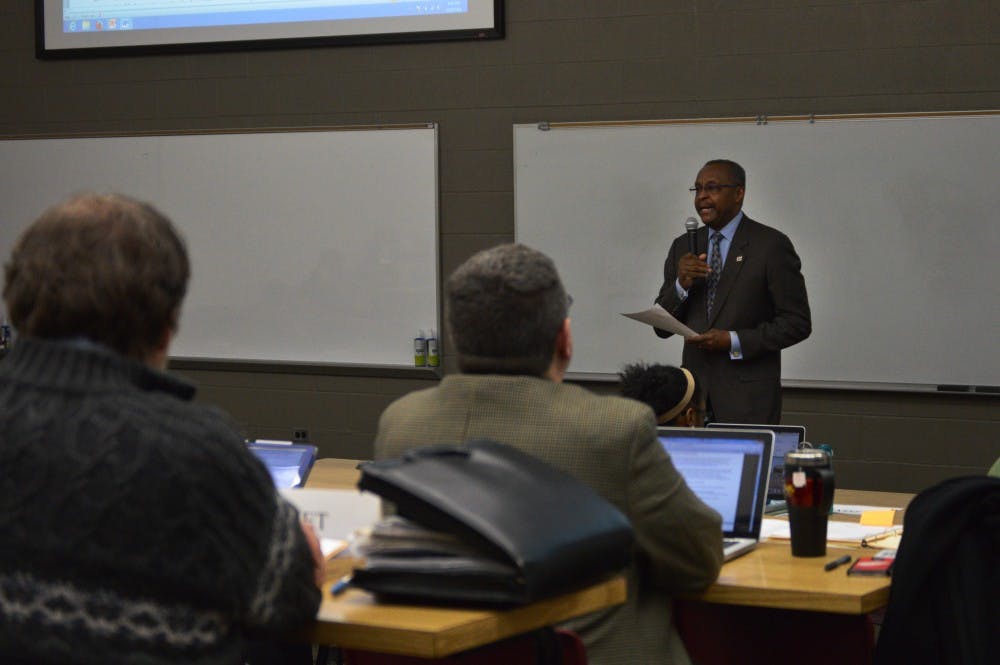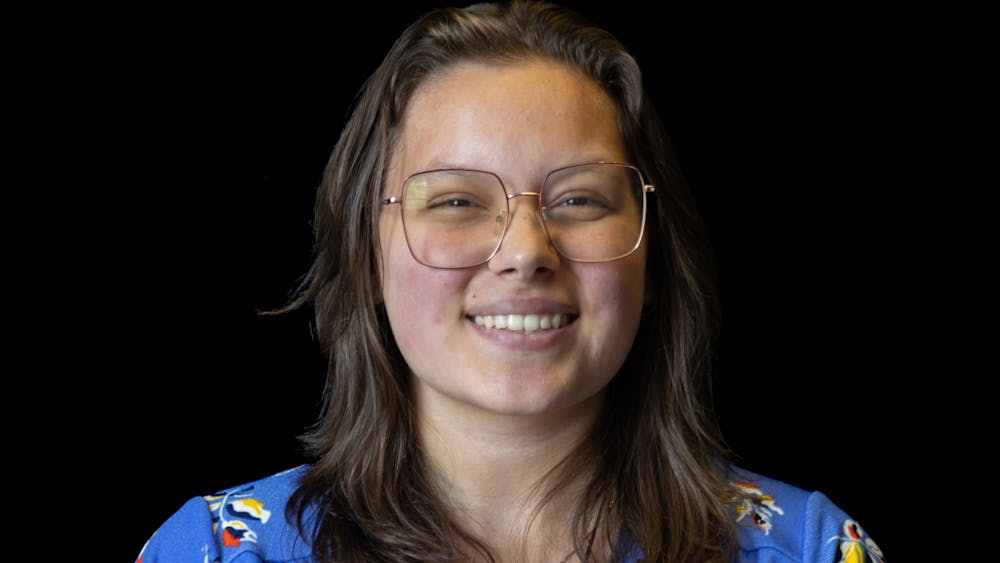President Ross discusses Flint water crisis at Academic Senate

Central Michigan University President George Ross spoke about his own family’s experience with the Flint water crisis during an Academic Senate meeting.
“I have two brothers, three sisters-in law, a host of nieces and nephews and grandnieces and nephews that live in Flint, Michigan, so this is personal to me, and they’re in a difficult situation.”
In light of the Flint water crisis, Ross was responding to a question asked by Senator Mary Senter about whether CMU considered providing assistance to Flint.
The president said he had been in contact with the Oversight Advisory Committee in Flint and offered assistance on behalf of the university Monday night. Ross said he was “asked to gather university assets,” and talk about longer-term help for the city.
“Flint’s in the news now, but what happens in five or six months, or a year?" Ross said.
Ross was informed that repairing the pipes in Flint could take as much as two years. He is also concerned about the long-term damage the crisis could have on his family.
“The effects on my grandnieces and nephews who are in grade school in Flint could be their lifetime.”
Ross said the university discussed with Thomas Masterson, Dean of the College of Health Professions, about using Mobile Health Central to provide assistance in Flint residents and sending biologists to test the water.
Other discussions
Sophomore Leesha Novak asked the president why students and faculty were not informed that the university was considering closing the pharmacy in Foust Hall. The president said the pharmacy was originally opened due to the lack of pharmaceutical services in Mount Pleasant, and with two pharmacies now open within walking distance, the pharmacy in Foust Hall was no longer necessary.
Novak asked the president if he thought there was anything the CMU community needed to do to increase communication between students, faculty and administration regarding changes to programs.

“I guess the short answer is, 'yes,'” Ross said. “There are always opportunities to improve communication.”
Novak asked Ross what he thought was the best way to improve communication. The president said he was open to ideas on improvements.
Provost Michael Gealt said during his report the search committee for a new dean of The College of Health Professions had interviewed 10 candidates, and that four finalists would be chosen to visit campus. The finalists will visit Feb. 8-11, one candidate per day. Gealt said the finalists would be announced in the near future.
After the president’s and provost’s reports, the Academic Senate voted in favor of eliminating the construction management major from the School of Engineering and Technology. The motion had been postponed at the previous meeting due to concerns over how the loss of the minor would affect Interim Design students.
An email sent by Terry Lerch, interim director of SET, to Megan Goodwin, chair of the Human Environmental Studies department was presented to the Senate. The email explained the minor in question was actually the Industrial Technology minor, which would be unaffected by the elimination of the Construction Management program.
General Manager of CMU Public Broadcasting Ken Kolbe spoke at the meeting to answer questions and provide information about the upcoming FCC Auction. Kolbe said the decision to apply to eligibility does not necessarily mean CMU will participate in the auction or sell its licenses to broadcast. He also said WCMU is the largest university-owned public broadcaster in the country, covering three quarters of the Lower Peninsula, or 6.2 million people.




